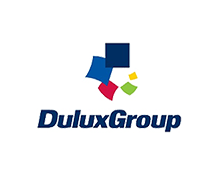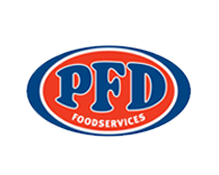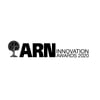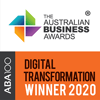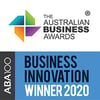Podcast transcript
AI and its Application in the Food & Beverage Sector: Podcast with Food & Drink Business
Complexica's CEO, Matt Michalewicz, joins Kim Berry on the Food&Drink Business podcast to discuss application areas of Artificial Intelligence in the Food and Beverage sector:
https://www.foodanddrinkbusiness.com.au/podcast/food-and-drink-business-podcast-matt-michalewicz
KB
Today we're going to be talking about the application of Artificial Intelligence software in the food and beverage sector. AI has been bandied around for a while now as the promised land of efficiency and business growth. But often when pressed on what it actually means and how it is applied, there tends to be a lot of hand waving and a bit of, you know, blah, blah, blah mats and hopeful distraction. So today we're going to be joined by Matt Michaelewicz, the founder of AI software specialist Complexica. It has developed a software platform to deliver supply and demand optimization. When it launched in 2014, its first clients were in the food and beverage sector, and it's maintained that vertical ever since. Arnott's Group, Costa Group, Lion, Pernod Ricard and PFD Foods, to name just a few. So let's welcome Matt. Hi, Matt.
MM
Hey, Kim. How are you going?
KB
Very well indeed. Now, Firstly. Well, AI might be new for some of us. You're a 25-year veteran and you even grew up with it didn't you? Do you want to tell us a bit more about that?
MM
Yeah. I'm actually a product of Artificial Intelligence in the sense that since 1982, when I was six years old, my father's been an AI scientist. So I grew up in a University setting. I would go there after school every day, sit in the corner, play video games while my father had conversations about neural networks or the Turing Test or machine learning techniques in his office with other professors and PhD students. So I really remember it from the very early days, and it's always been a part of the everyday vernacular at the dinner table and the people that I spent time with.
KB
That's remarkable. I mean, for a small child to be in that environment, hearing about those sorts of topics would have just been quite amazing.
MM
I turned out okay. I'm really surprised at the end, I was an only child as well. So all of that was kind of directed to me.
KB
Yeah. So many challenges to overcome that!
MM
That's right.
KB
Okay. Look, I want us to start at the very, very beginning. AI. What is it?
MM
Yeah. The simplest business definition is it's a field of research that tries to replicate the human body, the human experience, or our species. And it's actually very old. It's 70 plus years old. And because if you think about the human body, it has several key elements to it. The field of AI has been broken into these four major fields. One of them is robotics, which tries to replicate the mechanical movement of the human body. The second is computer vision, which tries to replicate the visual system of the human being, the interpretation of imagery, and so on. The third is natural language processing, which attempts to replicate speech. You can think of Siri, Alexa, Google home - those are all from that branch of AI. And the last one, and probably the most interesting is cognitive systems, which attempt to replicate brain functions like pattern recognition, deduction, inference, decision making. Those are all elements of the brain. So AI collectively tries to replicate artificially our biological being, but it's broken into these four major areas, each of them which has tens of thousands of scientists working in that particular direction.
KB
And Complexica - where does that sit?
MM
It sits in the last one. So we don't build robots, we don't do anything with moving or still imagery. We don't do things with voice or acoustic signals. We build software that helps companies and people inside of companies to make better decisions. And that is an exclusive function of the brain. That's where the decision-making sits, where you analyze information, you try to make predictions about the future, you run through different scenarios in your mind. That's the part of AI that we specialize in, and we put that into software to help people within businesses improve the quality of their decisions.
KB
So when AI did actually first start to really garner mainstream business attention, it rose very quickly to the top of the buzzword tree. There was a lot of pressure, I think, then within companies from the C-suite or the board saying, what are we doing with AI, what's our AI strategy? Has that changed at all as it's matured, or is it still something you come across?
MM
There are different companies and industries at different stages of maturity. So there are definitely still organizations that are discovering what AI is and trying to acquaint themselves with different use cases. But generally, that hype has overflown and spilled in the sense that this wider spread, education, and awareness of what it is - like many of these boards and companies realize that they already had elements of AI in their business. Many people don't realize that every credit card transaction that ever happened for Visa and so forth was based on an AI system, on a neural network since the 80s. So some organizations all of a sudden wanted to ask the question, What's our AI strategy and discovered there were places in their business that are ready heavily relied on AI. So that was very educational for them. Think about manufacturers, think about robotics, think about agriculture - how some of them use spectral analysis where they use imagery of crops, etc - all of that is based on AI algorithms. So I think there has been a sudden awareness, or sudden curiosity, sudden hype - what is it, how can we use it, what's our strategy? But AI has been slowly penetrating businesses and government organizations for decades, and it's been a part of our everyday lives, actually, in a lot of places already. It's just the sudden interest in it that has come to the surface.
KB
So then when you're looking at the area that Complexica specializes in in terms of supply and demand optimization, which, when it comes to food and beverage, I can't imagine there's actually a sector that would benefit from that more. What sort of companies are coming to you? And then what sort of solutions are then at play for a food and beverage manufacturer?
MM
Yeah. So the first thing that I want to say is we're big believers that the quality of decisions that we make as human beings determines the quality of the future that we experience - both at a personal level and a business level. If we make very poor decisions in our lives around education, career choices, relationships, we generally kind of experience a future that's commensurate with it, and the same in business. So if we target the quality of decisions, then the biggest commercial value that can be unlocked in companies is generally those areas where the complexity of those decisions is the highest, that's the most difficult. And if we talk about food manufacturers, in particular, there are three areas where really the complexity and scale of their decision making lends itself very well to Artificial Intelligence. And those areas are sales, marketing, and supply chain. And I'll touch upon them very, very quickly. In sales, generally, a manufacturer has a sales force, they are contacting customers, prospective customers. And there's an enormous amount of intelligence that can be injected into the sales function to guide salespeople, where to go, what conversations to have, how to engage with customers, the automatic analysis of information about customers. So there's an enormous amount of decisions that the sales function makes that can be improved through AI. In marketing, you've got pricing decisions, promotional decisions, how much money you allocate to trade spend, and so forth. All of that can be optimized and improved through AI algorithms and AI systems. And last is the whole area of actually producing a product: the production planning, production, scheduling, forecasting, demand - again, very complex decision-making, very well suited to Artificial Intelligence algorithms. And food manufacturers, given that some of them might even be vertically integrated, like wine producers, for example, where they might own vineyards, and they're actually an agricultural company, and they have a whole lot of decisions that they need to make at an agricultural level before the product is even picked and begins a processing sequence of steps. So you can imagine that kind of the whole chain of a product being grown, being picked, being processed, being turned into some kind of FMCG product, then going through wholesalers, logistics processes and entering retail and a consumer like me and you buying it. Think about all the decisions that are made in the chain of that product. And if you just improved all of those decisions, you could really realize much better commercial outcomes. And those are perfect applications for AI.
KB
What sort of scale are we working on here?
MM
In terms of the benefit that can be gained from AI is directly related to scale and complexity. And it should come as no surprise that if you have a very simple business with, say, one product and you're selling that one product to ten customers, then you could do it in pen and paper. But all of a sudden, if you're dealing with hundreds, thousands, tens of thousands of products, you're dealing with hundreds and thousands of customers, different stocking points. Assembly believes pricing, promotions, the complexity scale has increased to the point where you need some kind of technology. And the benefit of that technology is substantial. And in our experience today, we found that companies generally that turn over 50 million and above usually can create very good business cases for Artificial Intelligence. But that number keeps coming down. So to put that into perspective, Kim, if we talked about AI 20 years ago, we would be talking about companies that are billion-dollar in revenue. So with time, technology, commoditises itself, it becomes more accessible. It's cheap, it becomes more mainstream. If you look at how much it cost to build a website in 1995 versus today, you know, maybe a $100,000 in 1995. And today, for probably $500 or $1,000, you could get a website. And look at the first calculator - they cost $10,000 - the first computers now calculators are free. They're on phones and so forth. You know, the average mobile phone has more computing power than and NASA did when they put the man on the moon.
MM
AI will be like that. AI started off very expensive decades ago. It's very affordable today. If I had to predict 20 years from now, it will be everywhere. Just like computers and calculators are everywhere. There will be no business that you will find without AI 20 years from now.
KB
Yeah. Talk to me about an application, say, for an FMCG company that has a large range of SKUs and multiple sales channels - how would they implement an AI project or solution in that setting to really capitalize on their knowledge?
MM
Yeah. It's a great question. And I'll start by saying that businesses should always look at identify the business problem first and then work backward into the technology. So I'm very pragmatic. And I've got a business education, and I always look at things through a business lens. I look at technology as a means to an end. It's not the end in itself. So if we look at a food manufacturer, where are the areas where clearly improvement can be realized in those companies? In many food manufacturers, the cost of the product is a very big line item, labor is a very big line item. Trade spend in trade promotions - this is usually a huge item in FMCG spreadsheets, the production processes. So if you look at all of those areas, they're generally undertaken in spreadsheets, very inefficient processes. The quality of those decisions, despite good people working in those areas, is usually suboptimal. It would be very rare for you to go into a company in a complex environment, and someone just intuitively is making optimized decisions. So generally, a company might say, hey, we think we can optimize our trade promotions the way we promote our products in retailers, the frequency of those promotions, the types of promotions, the depth of discounts, and so forth. And to optimize that, you need a really sophisticated tool - you need to be able to make predictions on how these promotions will perform. You need to predict elasticities. If I drop the price, I'll solve this much more; cannibalization - how it will affect the rest of your portfolio. You might be optimizing the price. So this is a really complicated kind of problem to solve, and it doesn't lend itself well to pen and paper and spreadsheets in terms of solving it. So a company might say, hey, we know without a doubt that there is a significant benefit we can extract from optimizing our trade spend, and we want to have a tool that allows us to do that. So that's the problem, that's the thing that our company wants to solve. And then they'll look at what are the technologies available to us to solve this problem effectively and realize the business benefit. And they'll quickly find that AI-driven systems come top of the list because those are the systems that are best able to predict the best able to optimize, best able to support them in the decision-making process. Another food manufacturer might say: "Our biggest problem is accurately forecasting demand because if we don't know what we're going to sell, we can't make the right product, we can't make the right quantity, we don't know when to make that. That's our biggest challenge". So again, they've identified the problem. Now they're going to look for the technology, and again, they're very likely to find AI-driven demand forecasting systems that will come top of the list in terms of benefit and meeting the need. So this is generally the thinking that a company should have and the thought process of when they think about AI. Think about the business problem first, the application area: where is the complexity and value in your organization? And then look at the technology, not the other way around.
KB
And so when a company does that because obviously, you're then utilizing algorithms to then work out the best model or the best solutions for that. What's going into that algorithm? Is it data from across the sector, or is it just data from that business? Or where does it come from?
MM
The best results in our experience can be realized when you combine the data that a business has, like a food manufacturer, along with external data and external data might be, by the way, when I say the best results, I'm talking about the accuracy of the predictions that you're going to make. So that's the measure. We want to accurately predict what will happen in the future if we make different decisions. And if we just use our own data, we generally find that we're missing pieces of the puzzle. We might find weather plays a big role, there is an impact around socio-economic demographics from census data, there might be data sets from competitors that are important when they ran promotions and what their promotions were, and so forth. So the best results in our experience are gained when we combine these data sets together and build a predictive model from these combined data sets to predict what will happen in the future under different possible decisions that are available to us. And then we use optimization technology over that to evaluate billions of possible decisions to find the one that maximizes your performance in the marketplace.
KB
When you reach that point, is there ever a sort of stunned mullet phase where companies go, well, we weren't expecting that.
MM
Yeah, absolutely.
KB
That's so cool. I'd be wanting that!
MM
I know, but your point is such a good one. And actually, you've raised an incredibly important element of data-driven decision-making. People generally have biases, and people are creatures of habit, and we generally do things in a repetitive way, and very similar way, like promotions: we generally take what we did last year, and we tweak it for the following year, whereas a machine doesn't have these kind of biases, it doesn't have an education that it was taught to do things in a certain way. It is just looking for the decision that will maximize the result for you. And sometimes it will propose things that are so counterintuitive, and you would have never thought of doing it that way. But that's where the value is. That is a point of great value realization from a machine - you get a recommended decision that, you know, you would have never come up with that kind of decision yourself, and you can clearly see it's a better decision than what you would have made. That is a fantastic scenario that really proves the value of the technology.
KB
I love that. I love that there seems to always be that point of friction between humans. And once you're starting to use machine learning and AI and that the AI is going to replace or take over, but when you're telling us that situation to me, that is then empowering the people within the company to really achieve remarkable things for themselves professionally, but also for the company.
MM
Yeah. We don't see ourselves as a company where we automate labor - we augment labor because we believe the world has gotten to such a point where no human being can evaluate all the available data when making a decision. There is too much data. The velocity of that data is too great, just too much complexity. So then you provide a piece of technology that does that evaluation, but it only makes a recommendation. And then it's up to these human experts: the category managers, supply chain planners, demand planners, salespeople etc - they make the decision, but they have the benefit of a piece of technology that has analyzed all of this data and information and made some recommendations to them. You know, I use this analogy, wouldn't it be great if we were salespeople when we went to sleep at night and the machine analyzed all of the available data about our customers, their transactions, what they put on social media, their trends, and we wake up in the morning Kim, and the machine emails or SMSs to us some problems and opportunities based upon all of this analysis in the marketplace. That's one of our products and companies like Dulux or Bunzl PFD, they use this product, and so we can't replace the salesperson because the salesperson still needs to get in their car, go see the customers and do the things that machine can't - but now they've got the benefit of all of this intelligence and automated analysis. So we find it exciting to augment the human capability for data processing and decision-making.
KB
And I think that's something you touched on before about the biases that we bring into our lives and our decision-making every day. And it's also the fact that humans tend to be incredibly loss-averse: we're going to play it safe before we're going to take a risk. And the opportunities of taking that risk and taking it when you have a truckload of data and analysis to back it up is I just think that just opens up so much potential for companies by just taking out some of those human traits that make us who we are. But, you know, sometimes do inhibit us.
MM
Yeah. The point you made before about coming to intuitive recommendations. One of the latest areas of Artificial Intelligence research is to make the recommendations self-explainable. So in other words, for the system to explain itself to a user why a decision is being recommended because you can imagine you've done a certain job a certain way for 20 years. And then a machine comes along and it says, no, no, you should do this completely differently, forget everything that you've been doing before. We're going to do it now in a completely different way, because we're going to optimize it for better decisions. Well, what happens in that environment is - rejection happens: the user says, well, I'm not going to do it that way, what does this machine know?! I know I've been doing this for 20 years. So to ease that friction and to accommodate and facilitate change management, what AI is now doing is actually allowing itself to explain the reasons behind the decisions. You should do this because of this, because of that, because of these particular factors. And then the human operator looks at that: oh, yeah, that makes absolute sense, that is what I should do. So I love this kind of interaction, this interface between the human and the machine and how they work together to make the decision.
KB
I think that's an aspect of it that is really overlooked or not really talked about. I think there's a lot of discussion about people being worried that it's going to take their job. And I think in these situations, it really has huge potential to enrich their job.
MM
And I think this kind of viewpoint in general, that technology is going to displace me - that's a very old fear, it even predate computers, even in the Industrial Revolution, when the steam engine came about and so forth. And capitalism is structured in such a way where the board of directors has to increase the value of the Corporation, do things in the best interest of shareholders. So companies are looking for efficiencies. They're looking to do things better. And it's inevitable that through innovation, forget Artificial Intelligence, but just innovation in general, efficiencies will happen in different areas. But that doesn't mean that those jobs that like, for example, if your job was to add numbers together, then yes, you would have been replaced by a calculator. But then there was a whole lot of other jobs created to manufacture calculators, circuit boards and so forth. So I think the fear that people will be replaced in decision-making is ill-founded because at the end, you want people making these decisions. But I think we need to recognize that the technology will continue to advance every year, not just an AI, but in all areas, in robotics and so forth, because companies want to be more competitive, they want to be more efficient, they want to do things better in a more profitable way, and they're continuously looking for improvement. So this is the fear that's been around for a long, long time: "Oh, my God, I'm going to be displaced by technology!" I don't think it's going to go away now, and it's not going to go away in the future. And it just so happens that today it's talked about in the context of AI versus the steam engine or a calculator or a computer.
KB
When you're working with a company, what sort of time frame are you looking at for a project?
MM
It depends on the scale of the company and the scale of the project. But the shortest projects might be three months. And the longest projects might last a year or a year and a half, depending on how many products, how many geographies, how much of their business do they want to put into these models and systems to improve decision making, so the bigger things become, the longer they take. And for each product or each module, you have to train the algorithms, you have to get the data. You have to tune it, you have to test it and so forth, all of which takes time. You need to integrate the systems to the other IT systems within these companies: ERP systems, CRM systems, and so forth. So when you deal with large companies, you're generally dealing with longer time frames to implement bigger systems to address an area of complexity by some number of people. It's not something that you can, unfortunately, today that you can send someone a file, they download it, they open the application and bang, off we go. That might be the case in 20 years when everyone has it and it becomes accessible, but not today.
KB
That will be you in 20 years saying to your offspring, I remember when...
MM
Yeah, that's right. I taught my older son how to drive a manual, and then he called me old. It's something unrelated to cars, he said: oh, God, dad, you're so old, you don't know anything. And I said to him, you know what? In 20 years from now or 30 years from now, you'll be telling your son, I remember when I was a young kid and my father took me into the country in a petrol-powered car and a manual transmission and taught me how to drive it. And then your son will say, Papa, you're so old - everything's electric and driverless, what century are you from?!
KB
You know, just earlier, when you were talking about the notion of someone who's been doing something for 20 years, looking at this algorithm and going, I've been doing it like this for 20. And I'm like: oh, it's a parent-child relationship! That's my immediate thought was, this is like, you don't know anything. I'm the algorithm saying, you know, you are so old.
MM
There is an element of that to that. And I think just as human beings generally, we find comfort in routine. We find comfort in habit, in things being repetitive because they're easy. They require less thought, less friction, less effort. So we gravitate to doing things in some kind of repetitive way. And unfortunately, in business, that is seldom the optimal way of doing things, it is seldom the optimal decision. Usually, there's much better decisions that people just are not going to hit upon because we're stuck in routines, we're stuck in habits, we're stuck in ways of doing it. And the moment a machine comes along and shows them how to do something differently, you absolutely right: what do you know?
KB
Well, look, Matt, this has just been such a great conversation, and I hope for a lot of our listeners it's had that real light bulb moment as well, of going, oh, I get it now, because it is an area that is, like so many moving really quickly and appearing and infiltrating so much of what we do and really knowledge is power. It removes fear. It increases excitement and innovation. And so it's it's really fascinating to get some insights. And thank you so much for your time.
MM
My absolute pleasure. I've really enjoyed the conversation.
"Larry will be our digital expert that will enable our sales team and add that technological advantage that our competitors don't have."
Kerry Smith
CEO, PFD Foods
$1.6 billion in revenue 
"Lion is one of Australasia’s largest food and beverage companies, supplying various alcohol products to wholesalers and retailers, and running multiple and frequent trade promotions throughout the year. The creation of promotional plans is a complicated task that requires considerable expertise and effort, and is an area where improved decision-making has the potential to positively impact the sales growth of various Lion products and product categories. Given Complexica’s world-class prediction and optimisation capabilities, award-winning software applications, and significant customer base in the food and alcohol industry, we have selected Complexica as our vendor of choice for trade promotion optimisation."
Mark Powell
National Sales Director, Lion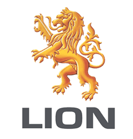
"At Liquor Barons we have an entrepreneurial mindset and are proud of being proactive rather than reactive in our approach to delivering the best possible customer service, which includes our premier liquor loyalty program and consumer-driven marketing. Given Complexica’s expertise in the Liquor industry, and significant customer base on both the retail and supplier side, we chose Complexica's Promotional Campaign Manager for digitalizing our spreadsheet-based approach for promotion planning, range management, and supplier portal access, which in turn will lift the sophistication of our key marketing processes."
Richard Verney
Marketing Manager
Liquor Barons

"Dulux is a leading marketer and manufacturer of some of Australia’s most recognised paint brands. The Dulux Retail sales team manage a diverse portfolio of products and the execution of our sales and marketing activity within both large, medium and small format home improvement retail stores. We consistently challenge ourselves to innovate and grow and to create greater value for our customers and the end consumer. Given the rise and application of Artificial Intelligence in recent times, we have partnered with Complexica to help us identify the right insight at the right time to improve our focus, decision making, execution, and value creation."
Jay Bedford
National Retail Sales Manager
Dulux

"Following a successful proof-of-concept earlier this year, we have selected Complexica as our vendor of choice for standardizing and optimising our promotional planning activities. Complexica’s Promotional Campaign Manager will provide us with a cloud-based platform for automating and optimising promotional planning for more than 2,700 stores, leading to improved decision-making, promotional effectiveness, and financial outcomes for our retail stores."
Rod Pritchard
Interim CEO, Metcash - Australian Liquor Marketers
$3.4 billion in revenue 
"After evaluating a number of software applications and vendors available on the market, we have decided to partner with Complexica for sales force optimisation and automation. We have found Complexica’s applications to be best suited for our extensive SKU range and large set of customers, being capable of generating recommendations and insights without burdening our sales staff with endless data analysis and interpretation.
Aemel Nordin
Managing Director, Polyaire
"DuluxGroup is pleased to expand its relationship with Complexica, a valued strategic partner and supplier to our business. Complexica’s software will enable DuluxGroup to reduce the amount of time required to generate usable insights, increase our campaign automation capability, personalise our communications based on core metrics, and close the loop on sales results to optimise ongoing digital marketing activity."
James Jones
Group Head of CRM, DuluxGroup
"Instead of hiring hundreds of data scientists to churn through endless sets of data to provide PFD with customer-specific insights and personalised recommendations, Larry, the Digital Analyst® will serve up the answers we need, when we need them, on a fully automated basis without the time and manual processes typically associated with complex analytical tasks.”
Richard Cohen
CIO, PFD Foods
$1.6 billion in revenue 
"As a global innovator in the wine industry, Pernod Ricard Winemakers is always seeking ways to gain efficiencies and best practices across our operational sites. Given the rise of Artificial Intelligence and big data analytics in recent times, we have engaged Complexica to explore how we can achieve a best-in-class wine supply chain using their cloud-based software applications. The engagement is focused on Australia & New Zealand, with a view to expand globally."
Brett McKinnon
Global Operations Director, Pernod Ricard Winemakers
"70% - 80% of what we do is about promotional activity, promotional pricing -- essentially what we take to the marketplace. This is one of the most comprehensive, most complex, one of the most difficult aspect of our business to get right. With Complexica, we will be best in class - there will not be anybody in the market that can perform this task more effectively or more efficiently than we can."
Doug Misener
CEO, Liquor Marketing Group
1,400+ retail stores 
"The key thing that makes such a difference in working with Complexica is their focus on delivering the business benefits and outcomes of the project."
Doug Misener
CEO, Liquor Marketing Group
1,400+ retail stores 
"Australia needs smart technology and people, and it has been a great experience for me to observe Complexica co-founders Zbigniew and Matt Michalewicz assemble great teams of people using their mathematical, logic, programming, and business skills to create world-beating products. They are leaders in taking our bright graduates and forging them into the businesses of the future."
Lewis Owens
Chairman of the Board, SA Water 
"Having known the team behind Complexica for some years ago now, I am struck by their ability to make the complex simple - to use data and all its possibilities for useful purpose. They bring real intelligence to AI and have an commercial approach to its application."
Andrew McEvoy
Managing Director, Fairfax Media - Digital 
"I have worked with the team at Complexica for a number of years and have found them professional, innovative and have appreciated their partnership approach to delivering solutions to complex problems."
Kelvin McGrath
CIO, Asciano 
“Working with Complexica to deliver Project Automate has been a true partnership from the initial stages of analysis of LMG’s existing processes and data handling, through scoping and development phase and onto delivery and process change adoption. The Complexica team have delivered considerable value at each stage and will continue to be a valued partner to LMG."
Gavin Saunders
CFO, Liquor Marketing Group 
“Complexica’s Order Management System and Larry, the Digital Analyst will provide more than 300 Bunzl account managers with real-time analytics and insights, to empower decision making and enhanced support. This will create more time for our teams to enable them to see more customers each day and provide the Bunzl personalised experience.”
Kim Hetherington
CEO, Bunzl Australasia 
"The team behind Complexica develops software products that are at the cutting edge of science and technology, always focused on the opportunities to deliver a decisive competitive edge to business. It has always been a great experience collaborating with Matthew, Zbigniew and Co."
Mike Lomman
GM Demand Chain, Roy Hill Iron Ore 
"The innovations that the Complexica team are capable of continue to amaze me. They look at problems from the client side and use a unique approach to collaborating with and deeply understanding their customers challenges. This uniquely differentiates what they bring to market and how they deliver value to customers."
John Ansley
CIO, Toll Group 
"Rather than building out an internal analytics team to investigate and analyse countless data sets, we have partnered with Complexica to provide our sales reps with the answers they need, when they need them, on a fully automated basis. We are excited about the benefits that Larry, the Digital Analyst will deliver to our business.”
Peter Caughey
CEO, Coventry Group 
“Complexica’s Order Management System and Larry, the Digital Analyst will provide more than 300 Bunzl account managers with real-time analytics and insights, to empower decision making and enhanced support. This will create more time for our teams to enable them to see more customers each day and provide the Bunzl personalised experience.”
Kim Hetherington
CEO, Bunzl Australasia 
"After an evaluation process and successful proof-of-concept in 2016, we have chosen to partner with Complexica to upgrade the technological capability of our in-field sales force. The next-generation Customer Opportunity Profiler provided by Complexica will serve as a key tool for sales staff to optimise their daily activities, personalise conversations and interactions with customers, and analyse data to generate actionable insights."
Stephen Mooney
Group Sales Capability Manager, DuluxGroup
$1.7 billion in revenue
"After evaluating a number of software systems available in the marketplace, we have ultimately selected Complexica as our vendor of choice for sales force automation and CRM. Given the large SKU range we carry and very long tail of customers we serve, Complexica’s applications are best suited to deal with this inherent complexity without burdening our staff with endless data entry."
Nick Carr
CEO, Haircaire Australia
Australia's largest distributor of haircare products
“Asahi Beverages is Australia’s largest brewer, supplying a leading portfolio to wholesalers and retailers, including some of Australia’s most iconic brands. Last year Asahi Beverages acquired Carlton & United Breweries, which is its Australian alcohol business division. To harness the strength of our expanded portfolio, we partner with our customers to run multiple and frequent trade promotions throughout the year, delivering long-term growth for both our business and theirs. Given the inherent complexity in optimising promotional plans and our continued focus on revenue and growth management, we have selected Complexica as our vendor of choice after a successful Proof-of-Concept of its world-class optimisation capabilities.”
Kellie Barnes
Group Chief Information Officer
Asahi Beverages
"Dulux is a leading marketer and manufacturer of some of Australia’s most recognised paint brands. The Dulux Retail sales team manage a diverse portfolio of products and the execution of our sales and marketing activity within both large, medium and small format home improvement retail stores. We consistently challenge ourselves to innovate and grow and to create greater value for our customers and the end consumer. Given the rise and application of Artificial Intelligence in recent times, we have partnered with Complexica to help us identify the right insight at the right time to improve our focus, decision making, execution, and value creation."
Jay Bedford
National Retail Sales Manager, DuluxGroup
"At Liquor Barons we have an entrepreneurial mindset and are proud of being proactive rather than reactive in our approach to delivering the best possible customer service, which includes our premier liquor loyalty program and consumer-driven marketing. Given Complexica’s expertise in the Liquor industry, and significant customer base on both the retail and supplier side, we chose Complexica's Promotional Campaign Manager for digitalizing our spreadsheet-based approach for promotion planning, range management, and supplier portal access, which in turn will lift the sophistication of our key marketing processes."
Richard Verney
Marketing Manager, Liquor Barons








